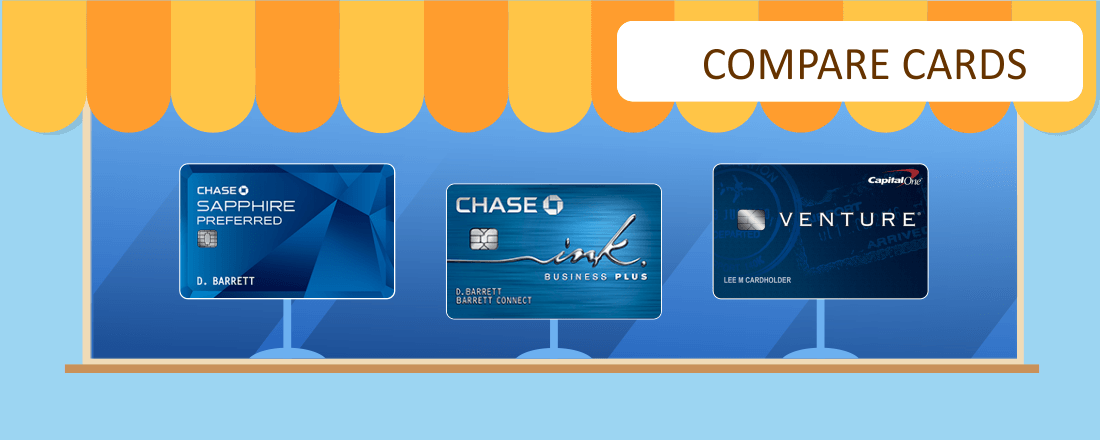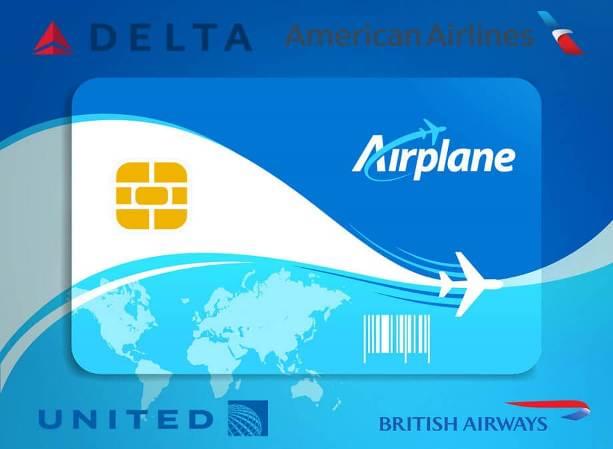
If you’re thinking about getting a
Though you can use almost any credit card while traveling internationally, you’ll definitely want a
Luckily, there are many cards that don’t charge foreign transaction fees, so you won’t and shouldn’t have to deal with this. For the purposes of this post, I won’t include any cards that do.
While credit card issuers, like Citi and Chase, decide if a particular card will charge foreign transaction fees, credit card networks, such as

To address the other issue—which cards earn points or miles that can get you where you want to go—it’s useful to split award cards into three categories: cards with transferable points, cards without transferable points and co-branded airline cards.
Cards that are part of major awards programs, such as Chase Ultimate Rewards and American Express Membership Rewards, are usually the best cards to get because they offer a mix of flexibility and value. You won’t be tied to one airline with these cards because you can transfer your points to several different frequent flyer programs. That gives you a lot of options for redeeming points. These cards also offer great value because you’ll get the most from your points if you redeem them directly through airlines.
Cards with nontransferable points sacrifice value for flexibility. These cards are similar to
The final category of cards, co-branded airline cards, earns miles with only one frequent flyer program. That limits your redemption options, but these cards can be a good choice if you know which airline you’re going to fly on.

Keep in mind that you aren’t limited to flying on one airline if you have one of these cards. You have to redeem through the carrier’s frequent flyer program, but you can book flights on partner airlines. If the carrier is part of an airline alliance, such as oneworld, Star or SkyTeam, then you’ll have a lot of options. The problem is that you may not get the best redemption rates or access to as many award seats.
Airline cards typically come with some nice airline specific perks, which may include everything from free checked bags, in-flight discounts and priority boarding to bonus elite status miles, free lounge access and companion tickets. These cards don’t typically earn as much as other rewards cards, offering double miles on airfare only, but the added perks might make them worth having, depending on your travel habits.
Which card is best for you depends on where you want to go and how you like to travel. Cards that have transferable points are generally safe bet, though, allowing you to maximize the value of your points and chose from a variety of frequent flyer programs.
Below I’ll cover the
Cards With Transferable Points
It probably comes as no surprise that the Chase Sapphire Preferred® Card is one of the best options for international travel. It has a big 60,000-point sign-up bonus , double points for all travel and dining, and a reasonable $95 At $ $4,000, it has a slightly higher minimum spend than many cards, but you have to make only $1,333 in purchases per month for three months.

What you might not know is that Chase’s business card, Ink Plus® Business Credit Card, is also a great choice. It comes with a bigger sign-up bonus of 60,000 points and more generous bonus earning categories. You’ll get quintuple points for some recurring expenses, such as landlines, cell phones, internet and cable, plus double points for gas and hotels.
| Sign-Up Bonus | Annual Fee | Bonus Earning Categories | |
|---|---|---|---|
| Chase Sapphire Preferred® Card | 60,000 points | $95 | 2x travel and restaurants |
| Ink Plus® Business Credit Card | 60,000 points | $95 annual fee | 5x phones, internet, cable and office supplies; 2x gas and restaurants |
You’ll have to spend more to get the bonus: $5,000 over 3 months, or $1,666 a month. Plus the $95 annual fee is not waived for the first year. Despite those drawbacks, it could be a better card for you depending on your spending habits. Keep in mind that you have to be a small business owner or an independent contractor to qualify for it.
With either of these cards, you can transfer your points to the seven different airlines that partner with the Ultimate Rewards program. They include several international carriers, such as Air France KLM Flying Blue, United MileagePlus, Korean Air SKYPASS, Virgin Atlantic Flying Club, Singapore Airlines KrisFlyer and British Airways Executive Club.
American Express also offers a few cards in its Membership Rewards program that come with good sign-up bonuses and charge no foreign transaction fees. The The Platinum Card® from American Express card has a 60,000-point sign-up bonus after spending only $5,000 in the first 3 months. While that’s the biggest bonus offered by American Express, the card also comes with a hefty Annual Fee of $550. Another drawback is that there are no bonus earning categories with this card. Every purchase gets one point per dollar spent.
| Sign-Up Bonus | Annual Fee | Bonus Earning Categories | |
|---|---|---|---|
| The Platinum Card® from American Express | 60,000 points | Annual Fee of $550. | 5x airfare, hotels and AMEX Travel purchases; 1x all purchases |
| American Express Gold Card | 35,000 points | $250 Annual Fee | 3x airfare; 4x restaurants and groceries |
A better choice for most travelers is the American Express Gold Card. It has a more affordable annual fee – $250 Annual Fee It also comes with some excellent earning categories, including triple points for airfare and double points for restaurants, gas and groceries. The sign-up bonus falls short of the Chase cards, though, at only 35,000 points after spending $2,000 in 3 months.
Amex Membership Rewards is the most flexible among rewards programs with transferable points. It has 17 airline transfer partners, including many international carriers such as Delta, Aeromexico, Air Canada, Alitalia, British Airways, Emirates, Air France KLM and Singapore Airlines.
Keep in mind that American Express isn’t accepted in as many places, particularly outside the U.S. You’ll definitely want a Visa, like the Chase cards above, or MasterCard in your wallet, too.
Cards With Nontransferable Points
There are two comparable personal cards in this category: the Barclaycard Arrival Plus® World Elite Mastercard® and the Capital One Capital One® Venture® Rewards Credit Card. Barclaycard Arrival Plus® World Elite Mastercard® comes with 70,000-mile sign-up bonus and Capital One® Venture® Rewards Credit Card comes with 50,000-mile sign-up bonus, which you’ll get after spending $3,000 in 3 months, and double miles for all purchases. The Arrival Plus card costs more at $89(waived first year) Venture Rewards has $0 intro for first year; $95 after that
| Sign-Up Bonus | Minimum Spend | Annual Fee | |
|---|---|---|---|
| Capital One Venture® Rewards Credit Card | 50,000 miles | $$3,000 | $0 intro for first year; $95 after that |
| Capital One® Spark® Miles Business Credit Card | 50,000 miles | $$4,500 | $0 intro for first year; $95 after that |
| Barclaycard Arrival Plus® World Elite Mastercard® | 70,000 miles | $$5,000 | $89(waived first year) |
If you qualify for it, the Capital One Spark Miles Business Credit Card card has a slightly higher sign-up bonus at 50,000 miles after spending $4,500 in 3 months. It also earns double miles on all purchases.
These cards do not have any airline transfer partners, which means that you won’t get the maximum value for your miles.
Co-Branded Airline Cards
Co-branded airline cards aren’t as flexible as other rewards cards when it comes to redeeming miles. But if you often fly on one carrier, or if you’re planning a big trip on a specific airline, then it might make sense to get one of these cards. The especially true if it
Sign-Up Bonus Minimum Spend Annual Fee
Lufthansa Miles & More® World Elite MasterCard® 50,000 miles $$5,000 $89 Annual Fee.
British Airways Visa Signature® Card 50,000 miles $$3,000 Annual Fee $95.
Citi® / AAdvantage® Executive World Elite™ Mastercard® 50,000 miles $$5,000 Annual Fee $450.
CitiBusiness® / AAdvantage® Platinum Select® World Mastercard® 60,000 miles $$4,000 Annual Fee $95 (Fee waived for the first 12 months).
Platinum Delta SkyMiles® Credit Card 50,000 miles $$3,000 Annual Membership Fee of $195.
Gold Delta SkyMiles Credit Card from American Express 30,000 miles $$1,000 $0 intro annual fee for the first year, then $95.
Chase United℠Explorer Credit Card 60,000 miles $$8,000 $0 Intro fee for the first year. After that, $95
The Lufthansa Miles & More® World Elite MasterCard® may not seem like a good option for a U.S. resident, but depending on where you’re flying, you might want to consider getting it. The card comes with a nice 50,000-mile sign-up bonus. If you’re heading to Europe, you can book a round-trip economy flight on Lufthansa with just that bonus. Unfortunately Lufthansa is one of those airlines that adds hefty fuel surcharges to its long-haul award flights. You’ll probably end up spending $600 or more for the transatlantic flight.
There are options, though. You can avoid most or all of those charges if you book flights on some of the carrier’s Star Alliance partners. For instance, you’ll pay around $100 in fees for a round-trip award flight to Europe on LOT Polish Airlines.
One of the great perks of the Lufthansa card is the annual companion ticket. You can’t use it with an award ticket, but you can fly yourself and a family or friend to Europe on Lufthansa for about half price. That alone might make it worth paying the $89 Annual Fee.
British Airways is another carrier that charges a prohibitive amount in fuel surcharges on international flights. But the British Airways Visa Signature® Card also comes with a big 50,000-Avios sign-up bonus. While those Avios are great for short-haul flights, particularly within Europe, you won’t want to use them to fly between the U.S. and Europe unless you book on one of British Airways’ oneworld alliance partners, like airberlin. You’ll pay about $100 in fees for a transatlantic flight on airberlin, compared to $600 or more on British Airways.

The only other airline card that has a standard sign-up bonus in the same league as British Airways and Lufthansa is the Citi® / AAdvantage® Executive World Elite™ Mastercard®. The bad news is that its 50,000-mile sign-up bonus also comes with a Annual Fee $450. It is not waived the first year. While it comes with some generous perks, such as free lounge access, it’s probably a little too spendy for most of us.
If you drop down to the 30,000-mile bonus range, there are a few more options, including the Platinum Delta SkyMiles® Credit Card and Gold Delta SkyMiles Credit Card from American Express, the Chase United℠Explorer Credit Card and the CitiBusiness® / AAdvantage® Platinum Select® World Mastercard®.
The Best Cards
For their relative flexibility and value, both the Chase Sapphire Preferred® Card or Ink Plus® Business Credit Card are great options. Neither card charges foreign transaction fees, and they both come with big sign-up bonuses, reasonable annual fees, fantastic earning categories and the ability to transfer points to seven different airline partners, including several international carriers.
If you just want to keep it simple and you aren’t too worried about wringing as much value as possible out of your miles, then the Capital One Venture® Rewards Credit Card is the way to go. You’ll get a 50,000-mile sign-up bonus which you can redeem for statement credits toward travel purchases, plus double miles for all purchases. It also has the lowest annual fee of all the cards mentioned here at only $0 intro for first year; $95 after that





